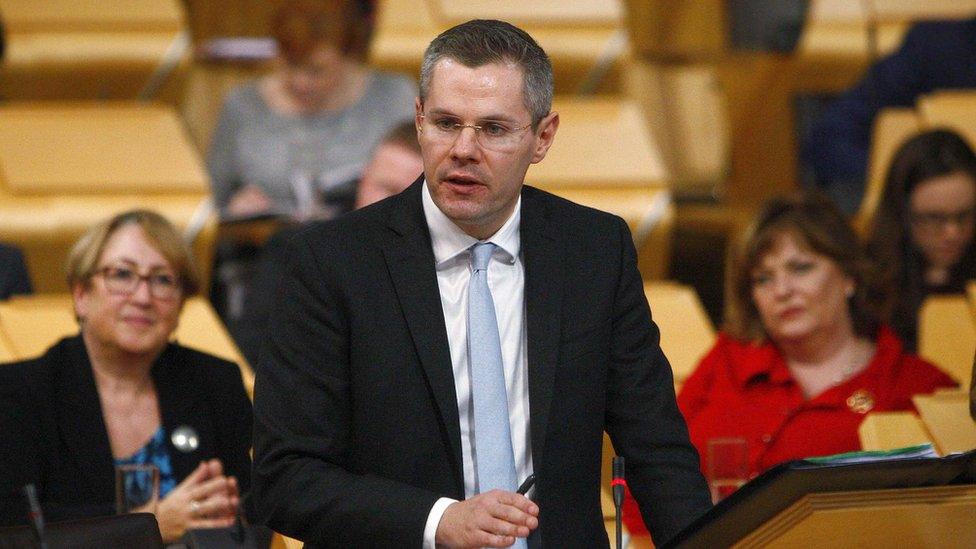Stalemate after Holyrood budget debate
- Published
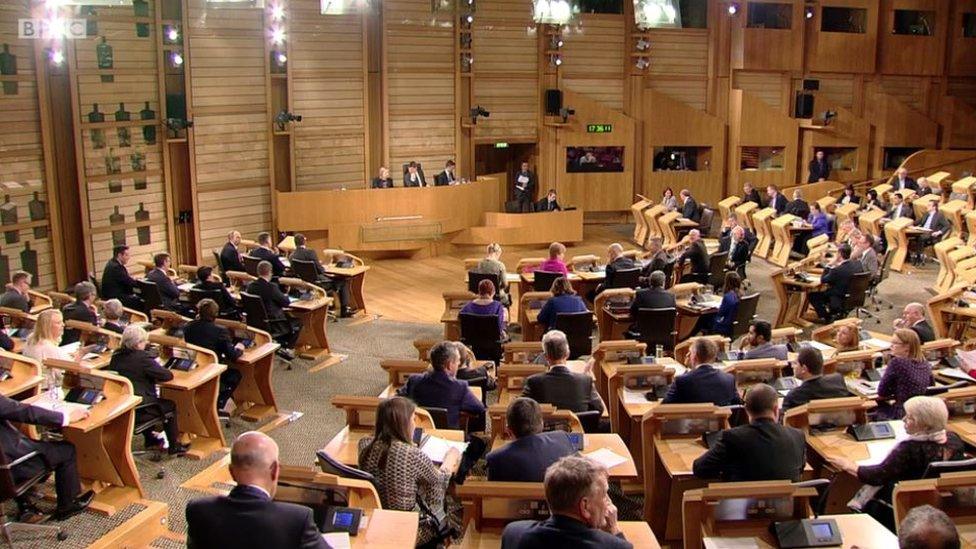
MSPs failed to come to any consensus after a budget debate at Holyrood
A budget debate at Holyrood has ended in stalemate after parties failed to come to any agreement over tax and spending plans.
Finance Secretary Derek Mackay is negotiating with opposition MSPs to win backing for his budget.
The Greens and Lib Dems have outlined changes which could win them over, on tax and spending respectively.
MSPs voted on a Labour motion urging members to reject the budget "in its current form", but it was defeated.
Mr Mackay successfully amended the motion to one supportive of the government after the Greens abstained, but all opposition parties then united against the amended motion.
With the final vote tied at 63 to 63, the Presiding Officer's casting vote was against the motion, meaning nothing was agreed.
With the SNP a minority government, Mr Mackay will need a handful of opposition members to at least abstain in order to get his budget through Holyrood.
The draft budget bill will be published on Thursday, and there will be separate votes on the tax and spending proposals in February.
Scottish Labour has put forward a debate seeking a cross-party consensus against the government's budget proposals.
Deputy leader Alex Rowley said members had "the opportunity to send a message on the SNP's austerity budget".
He said: "The SNP in government has all been about spin and the short term, but Scotland's sluggish economy is because of a decade of cuts to education budgets. Our NHS is overwhelmed because care for the elderly has been underfunded.
"Labour has an alternate plan that would use the new powers of the Scottish Parliament to invest in our public services and grow our economy."
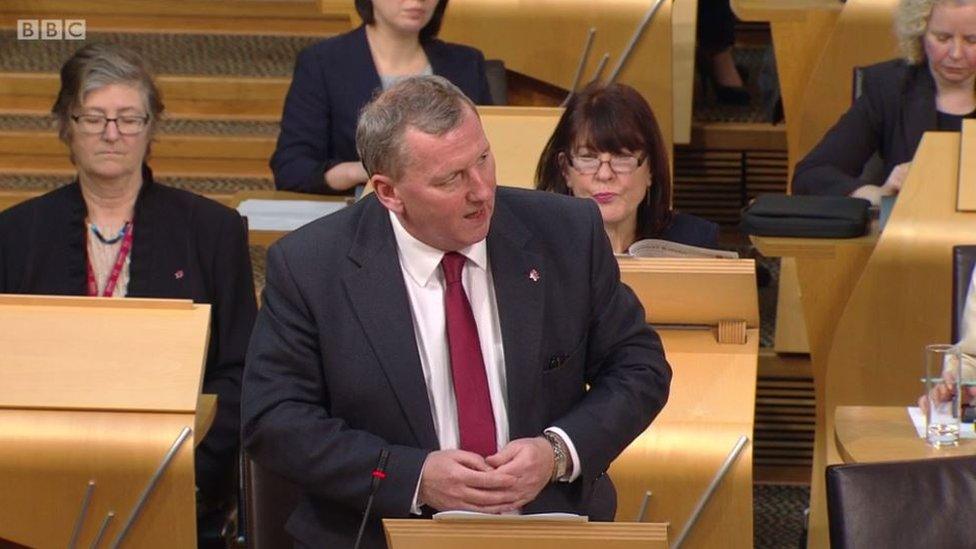
Alex Rowley said the government had the chance to make different choices
The finance secretary has indicated he could "not necessarily" find common ground with the Conservatives or Labour over the budget, but said discussions with the Lib Dems and Greens had shown "room for manoeuvre".
The Lib Dems have asked for "substantial changes", with up to £400m of extra spending on mental health, education, the police and transport.
The Greens, meanwhile, have asked for changes to income tax in return for their backing, which they say will "make the tax system fairer, reduce inequality in our society and generate additional funds for public services".
During the debate, each party promoted its own plans, although amendments from Willie Rennie and Patrick Harvie were rejected in the final votes.
The Conservatives, who also saw their amendment noting their position that "families and businesses in Scotland should not be taxed more than those elsewhere in the UK" defeated, criticised the pair as "Patsy Harvie and Willing Willie" for their attempt to "gain a few minutes of glory as saviours of the SNP budget".
However, Mr Rennie said members had a responsibility to work constructively to strike a budget deal, warning that failure to do so could potentially end in an election, something he said people in Scotland did not want.
Meanwhile, Mr Mackay lodged an amendment deleting the Labour motion in full, and noting that "government amendments to the budget reflecting the outcome of discussions with other parties can be made at any time during the scrutiny process", highlighting "constructive" discussions ongoing.
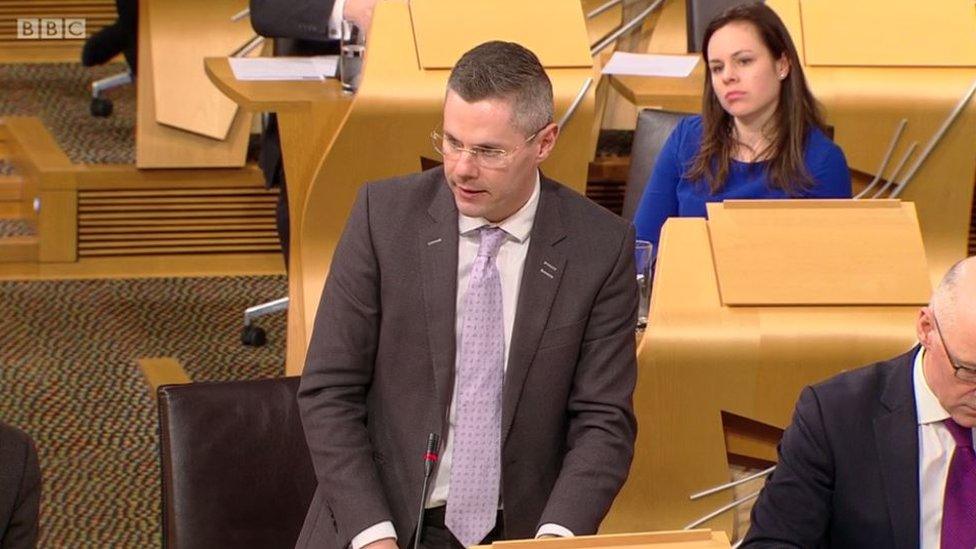
Derek Mackay has defended his budget proposals and accused opposition members of being in a "Better Together alliance"
Ahead of the debate, Labour highlighted figures in the budget showing the core funding going into council budgets falling by £327m, which they said was "cutting into our future".
However, the SNP has said this does not take into account funding which will go direct to schools and health and social care partnerships, which they said would boost local services by several hundred million pounds.
Mr Mackay has said Labour are "just wrong" about the budget and are working in a "Better Together alliance" with the Conservatives.
He said: "What the Labour Party are proposing to do is vote with the Tories against the Scottish budget, and in that budget we're proposing to allocate hundreds of millions of pounds more for our public services - to the NHS, to education and to local services.
"It's Labour that will be passing on austerity to the households of Scotland.
"Scotland is a wealthy and successful nation. The threat to Scotland's economy right now is Brexit and the Scottish government has set out a plan to put Scotland in the best possible position."

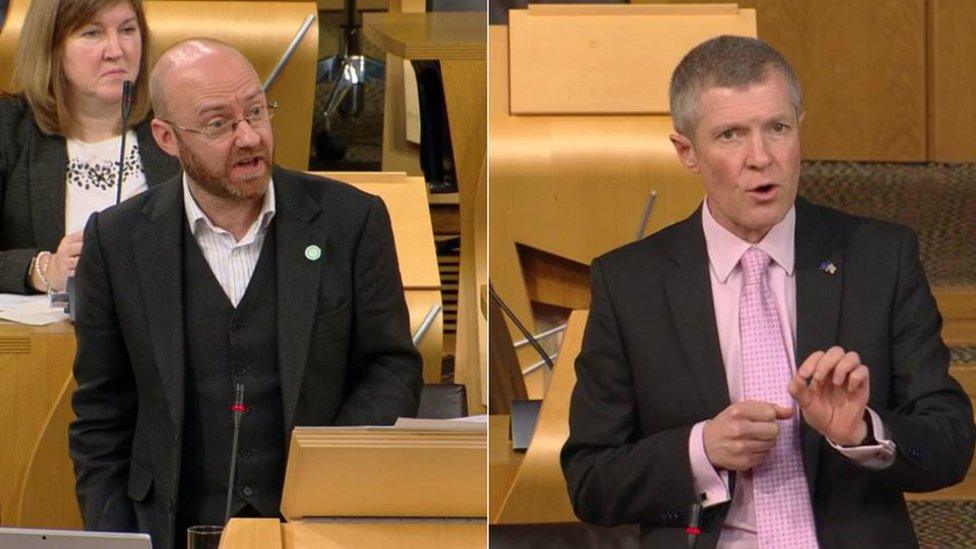
Patrick Harvie and Willie Rennie set out their bargaining positions for backing the government's budget
Analysis by BBC Scotland political reporter Philip Sim
Today's debate chiefly served to show how divided Holyrood is over the budget.
Labour had hoped to find some consensus for their motion rejecting the current draft - and so did the SNP, via Derek Mackay's amendment pointing out that the current draft is subject to change, pending negotiation.
Mr Mackay won round one, thanks to the Greens abstaining, but there was no consensus at the end of the day.
So what does this mean for the budget? The signs were not particularly encouraging.
Willie Rennie, who I still regard as the most likely partner for Mr Mackay in a budget deal, said there remains a "huge gap" between the Lib Dems and the SNP over the budget.
Patrick Harvie, the other leading suitor, said he hadn't seen any willingness to compromise from the government - and warned Mr Mackay about "brinksmanship".
Mr Harvie again underlined that his key demand is over tax. While nothing is set in stone, Derek Mackay is fairly determined not to compromise over tax - which is why I still see the Lib Dems, whose proposals are for spending, in pole position.
But equally, Mr Rennie has set a high price - £400m - and is determined not to sell his votes too cheaply. If this vote serves to do anything, it may have upped the ante in the backroom negotiations.
- Published22 January 2017
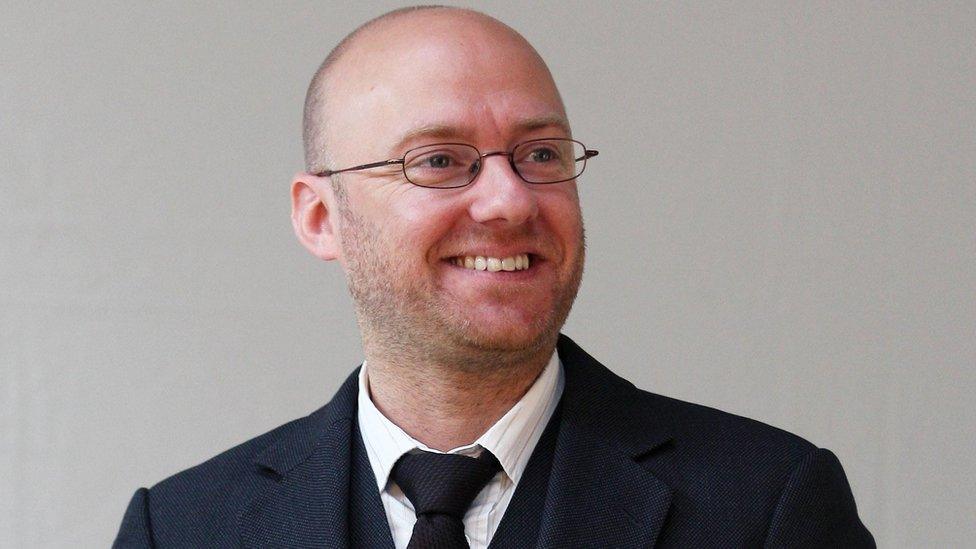
- Published19 January 2017
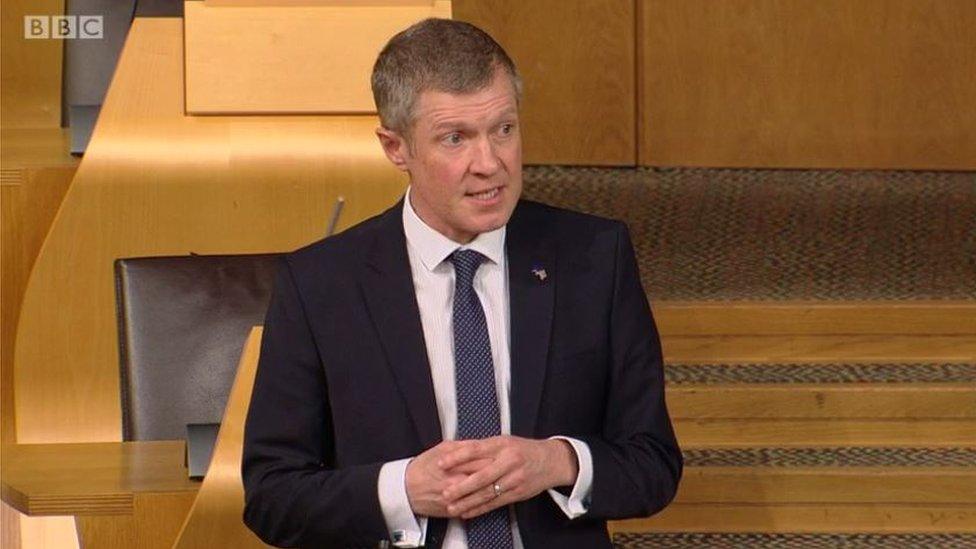
- Published13 January 2017
